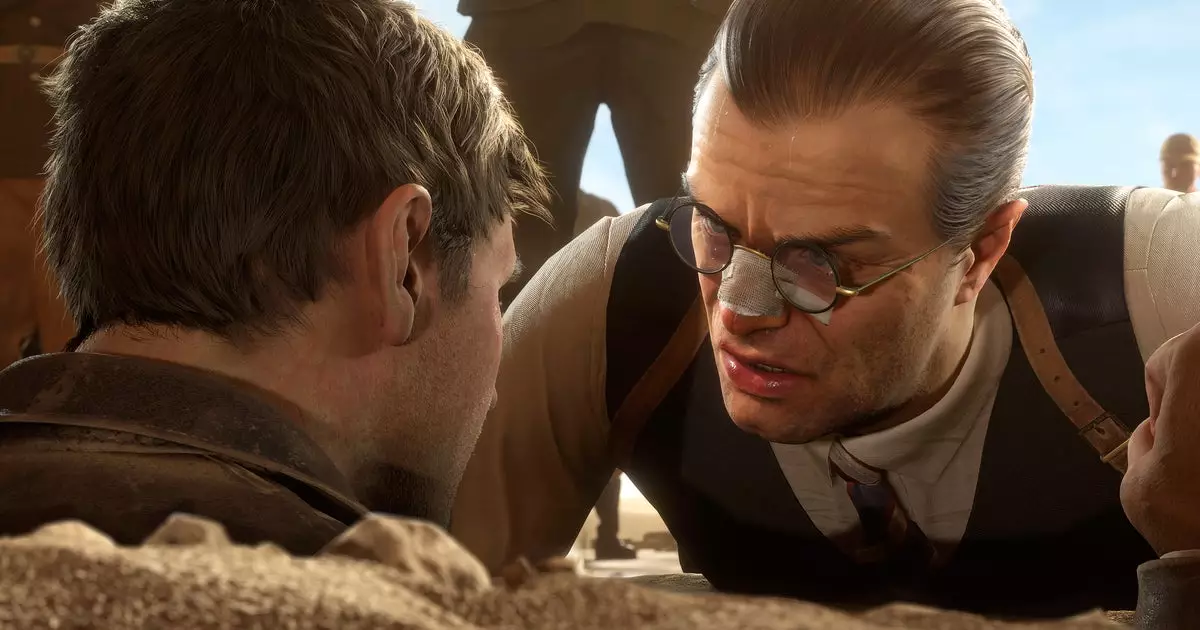The realm of video games has long served as a platform for escapism, adventure, and sometimes, a showcase of historical events. However, when it comes to beloved franchises like Indiana Jones, navigating the representations of historical regimes, particularly the infamous Nazi party, can be fraught with complexities. The upcoming game, “Indiana Jones and the Great Circle” developed by MachineGames, confronts this challenge head-on. With the protagonist’s clear disdain for Nazis — “Nazis? I hate these guys!” — the narrative walks a tightrope between offering thrilling entertainment and being sensitive to the historical realities of World War II.
Indiana Jones has always been a character embedded within historical narratives, albeit often through the lens of fantastical adventure. His entanglements with the Nazi regime, whether through romantic misadventures or accidental cosplay as an SS officer, frame him as a character who confronts evil. Yet, these clips of humor and adventure raise questions about historical representation within video games. Can the glorification of action against Nazis in a virtual space inadvertently tarnish the gravity of real-world atrocities?
The developers seem aware of this delicate dance. Their recent disclaimer serves as a protective measure, ensuring players understand that the game is a creative interpretation rather than an endorsement of any historical ideologies. It reiterates that the narrative aims neither to trivialize the horrific events of the past nor to create a platform that could be misconstrued as condoning fascist ideologies. Yet, this disclaimer also provokes reflection on the duality of such representations; it puts forth a scenario where fictional violence against a historically evil regime can be distorted into a source of entertainment detached from its unintended implications.
“Indiana Jones and the Great Circle” offers players an opportunity to combat fascists, potentially appealing to a range of gamers from enthusiasts of the franchise to those wanting straightforward gameplay. However, there lies an inherent tension in the idea of treating the Third Reich as a backdrop for entertainment. The question emerges: can we engage with such narratives without inadvertently humanizing or glamorizing those responsible for atrocities?
The title’s potential to depict a “Third Reich Bullying Simulator” can draw attention to an ominous possibility. While some players may embrace the idea of vanquishing foes symbolizing hate and oppression, others might find this approach reductive or even disrespectful to historical victims. It invokes the problem of sensationalism in entertainment: where do we draw the line between engaging narratives and the ethical responsibilities of creators?
Modern gaming culture has begun to witness a shift in focus towards more responsible storytelling. This becomes particularly crucial when dealing with the contrasting ideals of their source material. While video games are mediums of fantasy, they often reflect societal sentiments and provoke discourse regarding morality. As the gaming industry has evolved, developers have embraced a crucial role as cultural narrators, making their ethical approach to controversial topics ever more significant.
The disclaimer may simply serve as legal protection, but its necessity reinforces the idea that gaming can be a double-edged sword. It can entertain while influencing perceptions of historical events and ideologies, conscious or otherwise. This interplay between entertainment, historical awareness, and social responsibility continues to shape the landscape of interactive storytelling, forcing developers and audiences alike to question their place within these narratives.
As we venture into the world of “Indiana Jones and the Great Circle,” we are reminded of the power dynamics at play in both the narratives presented and the actions we as players may choose to undertake. Creators must be vigilant in their portrayal of sensitive historical themes, ensuring they honor the past while delivering engaging experiences. The line between escapist entertainment and reinforcing problematic ideologies is indeed thin, but it is crucial that both developers and players approach this terrain with awareness and reverence for those who suffered amid the real-life drama of history. In doing so, we can celebrate the thrill of adventure without sacrificing the solemnity that historical realities demand.

